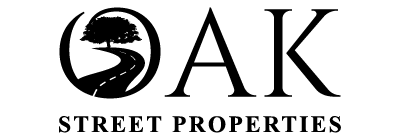Purchasing a home is a significant investment, and conducting a thorough home inspection is a crucial step in the process. A home inspection provides buyers with a comprehensive assessment of the property’s condition, identifying potential issues and helping them make informed decisions.
In this article, we will discuss the importance of home inspections, provide guidance on hiring a reputable home inspector, explain the inspection process, and provide an essential home inspection checklist.
What is a Home Inspection?
A home inspection is a professional assessment of a property’s condition, typically performed by a certified home inspector. A home inspection aims to identify any existing or potential issues that may impact the property’s value, safety, or habitability.
It is an opportunity for buyers to gain a deeper understanding of the property and make informed decisions based on the inspection report.
Potential Risks of Skipping an Inspection
Skipping a home inspection can be a risky decision for buyers. Without an inspection, they may be unaware of hidden problems that could lead to costly repairs down the line.
For example, structural issues, electrical problems, plumbing leaks, or mold growth might go unnoticed, potentially jeopardizing the safety and value of the property. It is essential to recognize that the cost of repairs resulting from undiscovered issues could far exceed the cost of a home inspection.
Hiring a Home Inspector
When hiring a home inspector, finding a reputable professional who is experienced and knowledgeable is crucial. Seek recommendations from trusted sources, such as friends, family, or real estate professionals.
Research the inspector’s qualifications, certifications, and professional affiliations. Ensure they have comprehensive knowledge of local building codes and regulations.
What Happens During a Home Inspection?
During a home inspection, the inspector evaluates various components of the property to assess its condition. The inspection typically includes a visual examination of the exterior and interior and an assessment of the major systems, such as plumbing, electrical, and HVAC.
The buyer accompanies the inspector during the inspection to gain insights into the property and ask questions. It is an opportunity to learn about the property’s maintenance needs, potential repairs, and any safety concerns. The inspector will objectively assess the property’s condition, identify any issues, and document their findings in a detailed report.
Essential Home Inspection Checklist
A comprehensive home inspection covers numerous areas and components of the property and needs to be done when you’re getting your home ready for sale. Here is an essential checklist to guide buyers during the inspection process:
Exterior Inspection
- Roof: Assess the condition, age, and any signs of damage or leaks.
- Foundation: Look for cracks, settling, or signs of structural issues.
- Drainage: Check for proper grading, functioning gutters, and downspouts to ensure proper water management.
- Siding and Exterior Walls: Examine for damage, rot, or pest infestation signs.
- Windows and Doors: Ensure proper functionality, sealing, and any signs of damage or drafts.
- Landscape and Drainage: Evaluate the condition of the yard, landscaping, and drainage systems.
Interior Inspection
- Plumbing: Inspect pipes, fixtures, water pressure, and check for leaks or signs of water damage.
- Electrical Systems: Evaluate the main electrical panel, outlets, switches, and wiring for safety and compliance.
- HVAC Systems: Assess the heating, ventilation, and air conditioning systems for functionality, efficiency, and maintenance requirements.
- Walls, Floors, and Ceilings: Look for cracks, stains, or signs of water damage that may indicate structural issues or leaks.
- Appliances: Test the functionality of kitchen and laundry appliances.
- Attic and Insulation: Inspect insulation levels, ventilation, and signs of pests or moisture.
Additional Testing
Additional testing may be necessary depending on the property’s age or specific concerns. This could include:
- Testing for Lead: Especially important in older homes, testing for lead paint can help identify potential health hazards.
- Asbestos Testing: Older properties may contain asbestos, and testing can determine its presence and potential risks.
- Radon Testing: Radon is a colorless and odorless gas that can be harmful in high concentrations. Testing can help identify if radon is present.
What’s Not Included in a Home Inspection?
It’s important to note that certain areas and aspects are typically not covered in a standard home inspection. These may include specialized inspections for pests, mold, or environmental hazards.
Additionally, cosmetic issues or minor repairs may not be part of the inspection report. If buyers have specific concerns or areas they want to be inspected, they can consult with their home inspector or hire specialized inspectors to address those areas separately.
What to Do After the Inspection
After receiving the home inspection report, buyers should carefully review and understand the findings. The report will likely include both minor and major issues identified during the inspection. Buyers can use the inspection report to negotiate repairs with the seller or request a price reduction to account for necessary repairs or maintenance.
It is essential to consult with their real estate agent to determine the best approach for negotiations based on the inspection findings. It’s worth noting that not all issues identified during an inspection are deal-breakers. Some issues can be easily resolved, while others may require more significant repairs.
Before proceeding, buyers should consider their comfort level with repairs, costs, and timelines. The inspection report is also valuable for future maintenance and repairs. Buyers can prioritize necessary repairs, budget accordingly, and create a long-term maintenance plan to protect their investment.
Home Inspection FAQs
- How long does a typical home inspection take? A typical home inspection can take 2 to 4 hours, depending on the property’s size and complexity.
- Can a house fail a home inspection? A home inspection is not a pass-or-fail evaluation. Its purpose is to objectively assess a property’s condition, highlighting any issues or areas of concern.
- What is the difference between an appraisal and a home inspection? An appraisal determines the market value of a property, while a home inspection focuses on assessing the property’s condition and identifying potential issues.
- Do sellers have to fix everything on a home inspection report? The seller is not obligated to fix everything the home inspection report identifies. Negotiations between the buyer and seller will determine which repairs, if any, the seller will address.
- Are there any circumstances where I might want to skip a home inspection? Skipping a home inspection is generally not advisable, as it can expose buyers to potential risks and financial burdens. However, in highly competitive markets with multiple offers, buyers may choose to include an inspection contingency with a shorter timeframe to make their offer more appealing.
- Can I do a home inspection myself, or do I need to hire a professional? While buyers can certainly assess some aspects of a property themselves, a professional home inspection provides a comprehensive and unbiased assessment by an experienced and qualified inspector. It is recommended to hire a professional for a thorough evaluation.
- How much does a typical home inspection cost? Home inspection costs can vary depending on factors such as the property’s location, size, and additional testing requirements. On average, a standard home inspection may cost between $300 and $500, but prices can be higher for larger or more complex properties.
Key Takeaways: Your Guide to Smart Purchasing
A home inspection is an essential step in the home-buying process. It gives buyers a comprehensive understanding of a property’s condition, allowing them to make informed decisions and negotiate repairs or price adjustments when necessary.
Buyers can ensure a smart purchase and protect their investment by hiring a reputable home inspector, following an inspection checklist, and using the report to guide negotiations.
When you’re ready to sell your property, trust Oak Street Properties for a faster and more convenient sale. Contact us today to learn more and experience the benefits of working with a reliable real estate company.

